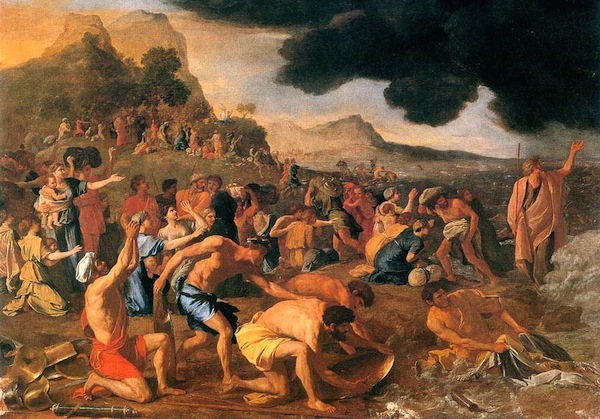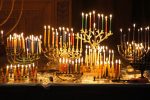Like many of you, I approach the New Year and Yom Kippur with a heavy heart. Ashamnu. We have sinned. Much is not well, not as it should or can be. Our communities are filled with anger, fear, hatred, pain, and acrimony.
Our tradition placed a heavy burden on us. Atonement is only attainable when accompanied by a commitment to change one’s behaviour. The burden is doubly heavy, for we are not merely responsible for our individual failings, but for our societal ones. Ashamnu. We have sinned. Yom Kippur is not merely a day of prayer in search of Divine forgiveness, but a day of taking responsibility for the world that we have created.
There are so many places to start this process and, for those who don’t know where, the Jewish prayer book provides guidance. Ashamnu. Bagadnu. Gazalnu. Dibarnu dofi. We have sinned. We have betrayed. We have taken that which is not ours. We have spoken evil.
This year, I will begin with the sin of certainty. The certainty that I have the truth and others do not. The certainty that I am right and others wrong. The certainty that I am good and others bad. The certainty that I love my country and others do not.
“Our God and God of our ancestors, we are neither so insolent nor so obstinate as to claim in your presence that we are righteous, without sin; for we, like our ancestors who came before us, have sinned.” (Yom Kippur Machzor)
Inherent to every social structure is the reality of difference. Members, adherents, citizens, who join or are joined together by blood, race, gender, ideology, religion, culture or nationality, inevitably find themselves disagreeing over issues both minor and major. Differences are a permanent and inevitable reality of life. By themselves, they do not undermine social cohesion. What threatens unity is how we respond to the reality.
The three conceptual tools for reflecting on difference are pluralism, tolerance and deviance. When those who are different are classified as deviant, the possibility of a shared society with them comes to an end. It is here that the sin of certainty spreads its destructive poison. The hubris of certainty allows one to shun and shame those who do not share in the truth as you know it, and to move them to the margins of society, if not outside it. Armed with certainty, acts of blatant aggression are clothed with the garments of self-preservation and sanctioned as acts of group loyalty.
A certainty of a different form is played out in the category of pluralism. We are pluralistic toward those differences that we assume to be of equal value to our own positions – “These and these are the words of the living God.” With pluralism, we accommodate difference that we believe is equally authentic and that we can associate as being on par with our truth, our knowledge and our beliefs. These and these are the words of the living God, but not those and those. And the one who decides is us.
Why tolerate that which I believe to be wrong?
The danger that lies with the sin of certainty is that it attempts to create social life around the categories of pluralism and deviance alone. Difference to which I ascribe value is accommodated and welcomed as my friend. Difference that I do not, is rejected and ostracized as my enemy. I and my certainty are the ultimate arbiters of who is in and who is out, who is valued and who is not, who is to be cared for and who is not, who is to be respected and who vilified.
It is tolerance, the often-derided category, that is most absent in much of contemporary social discourse. One does not tolerate that which one values, but rather that which one thinks is wrong. Tolerance can only take root in those places where we are able to relinquish our claim to certainty. Why tolerate that which I believe to be wrong? Because I know it is possible that my belief may also be wrong. Because I believe that truth, knowledge and enlightenment will only grow when I expose my certainty to the critique of others; when I am open to learn from others’ truths, knowledge and experience.
Why tolerate that which I believe to be wrong? Because I and those like me do not have a monopoly over the “true” identity of our society. It is theirs just as much as it is ours. We are destined to live with those who believe and do that which we hold to be intolerable. In some cases, judgment of deviance is both called for and necessary and, without boundaries, our societies will dissolve and lose any purpose, meaning and identity.
Which difference do we tolerate, and which do we not, is the question. The sin of certainty both blinds us to this question and renders us incapable of such discernment. The price? The price is the dysfunctional harmful social discourse and behaviour dominating our lives today.
“Our God and God of our ancestors, we are neither so insolent nor so obstinate as to claim in Your presence we are certain.”
Rabbi Dr. Donniel Hartman is president of the Shalom Hartman Institute and author of the 2016 book Putting God Second: How to Save Religion from Itself. Articles by Hartman and other institute scholars can be found at shalomhartman.org.



